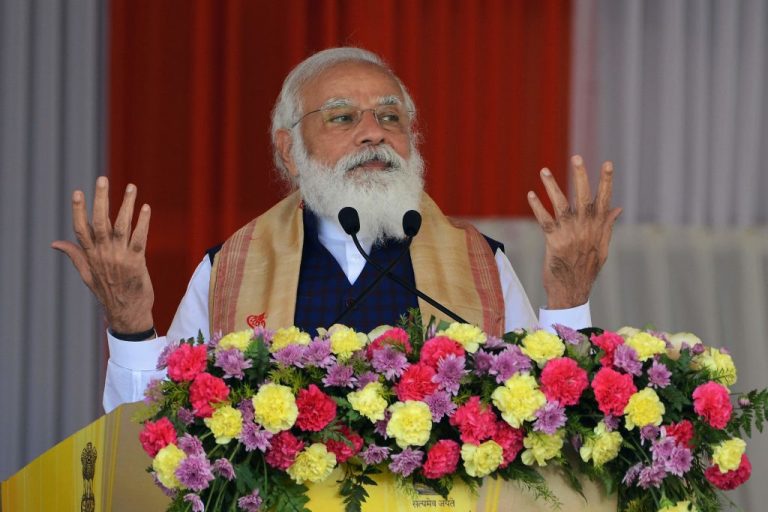In the midst of the pandemic, there has been a shake-up within the cabinet of the government of India.
Twelve ministers were fired by Indian Prime Minister Narendra Modi, including the country’s own health minister, over harsh feedback regarding the government’s handling of the Coronavirus Disease 2019 (COVID-19) pandemic.
In their places, several members of the Bharatiya Janata Party (BJP) have been sworn in. This has been the first reshuffle of the cabinet since Modi’s re-election in 2019.
“I congratulate all the colleagues who have taken oath today and wish them the very best for their ministerial tenute. We will continue working to fulfil [the] aspirations of the people and build a strong and prosperous India,” Modi said on Twitter.
Last week, the official COVID-19 death count passed the 400,000 marks after a spike in infections occurred, with most of the deaths attributed to the Delta variant of the virus.
Fight against COVID-19
Success
You are now signed up for our newsletter
Success
Check your email to complete sign up
Among the people, Modi asked to step down was Harsh Vardhan, who held the position of Health Minister for two terms. He was a symbol of India’s struggle against the pandemic and was tasked with helping to unify the country’s efforts.
However, despite Vardhan’s lengthy track record in the medical field, he and his deputy, Ashwani Choubey, were asked to step down following criticism of the government’s management of the health crisis.
Political commentator Rasheed Kidwai said, “The larger implication is that the confidence that the Modi government had was shaken by the second wave. Modi is trying to introduce a new work culture by these changes.”
IT minister fired
Also removed from his post was Information and Technology Minister Ravi Shankar Prasad, who headed the government’s attempts to get U.S. social media companies to abide by the laws of the country.
It is unknown why Prasad was fired, although a source familiar with the mindsets of Facebook, WhatsApp, and Twitter anticipated them to welcome the change.
“A reset always helps,” the source stated. “It so far appeared there was lack of conversation.”
The political scramble
Other members let go by Modi included Information and Broadcasting minister and government spokesperson Prakash Javadekar, as well as Dharmendra Pradhan, who was replaced by Hardeep Singh Puri as oil minister. High fuel prices have plagued India in recent weeks.
Core members that remained included those in the foreign, finance, home, and defense departments, despite India’s deep recession and fears of the pandemic hindering recovery efforts. Modi also kept Home Minister Amit Shah, Defence Minister Rajnath Singh, Finance Minister Nirmala Sitharaman, and External Affairs Minister Subrahmanyan Jaishankar.
While India’s national elections will not be held until 2024, several states are still planning to launch elections next year.
According to opposition leader Palaniappan Chidambaram, the dismissal of the health minister and his deputy was a sign of the government’s failure to handle the pandemic, but the blame should also be ascribed to Modi.
He said, “There is a lesson for ministers in these resignations. If things go right the credit will go to the PM, if things go wrong the minister will be the fall guy.” Modi’s popularity will soon be tested in states planning to hold elections.


















